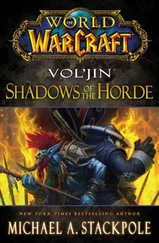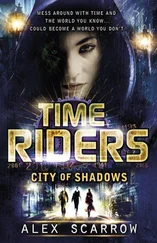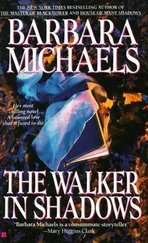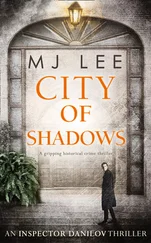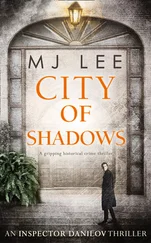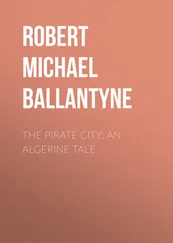Michael Russell - The City of Shadows
Здесь есть возможность читать онлайн «Michael Russell - The City of Shadows» — ознакомительный отрывок электронной книги совершенно бесплатно, а после прочтения отрывка купить полную версию. В некоторых случаях можно слушать аудио, скачать через торрент в формате fb2 и присутствует краткое содержание. Жанр: Исторический детектив, на английском языке. Описание произведения, (предисловие) а так же отзывы посетителей доступны на портале библиотеки ЛибКат.
- Название:The City of Shadows
- Автор:
- Жанр:
- Год:неизвестен
- ISBN:нет данных
- Рейтинг книги:5 / 5. Голосов: 1
-
Избранное:Добавить в избранное
- Отзывы:
-
Ваша оценка:
- 100
- 1
- 2
- 3
- 4
- 5
The City of Shadows: краткое содержание, описание и аннотация
Предлагаем к чтению аннотацию, описание, краткое содержание или предисловие (зависит от того, что написал сам автор книги «The City of Shadows»). Если вы не нашли необходимую информацию о книге — напишите в комментариях, мы постараемся отыскать её.
The City of Shadows — читать онлайн ознакомительный отрывок
Ниже представлен текст книги, разбитый по страницам. Система сохранения места последней прочитанной страницы, позволяет с удобством читать онлайн бесплатно книгу «The City of Shadows», без необходимости каждый раз заново искать на чём Вы остановились. Поставьте закладку, и сможете в любой момент перейти на страницу, на которой закончили чтение.
Интервал:
Закладка:
Michael Russell
The City of Shadows
PART ONE
In the back drawing-room there was a quantity of medical and electrical apparatus. From the ceiling, operated by pulleys, was a large 170 centimetre shadow less operating lamp hanging over a canvas covered object — when the cover was removed it was found to be a gynaecological chair with foot rests. The detective sergeant found a specially padded belt that could be used in conjunction with the chair. Among the objects found in the drawing-room was a sterilising case, in the drawer of which were wads of cotton wool. In the office there was a cardboard box containing a dozen contraceptives and a revolver.
The Irish Times1. The Phoenix Park
Dublin, June 1932
The moon shone on the Liffey as it moved quietly through Dublin, towards the sea. The river was sparkling. Silver and gold flecks of light shimmered and played between the canal-like embankments of stone and concrete that squeezed it tightly into the city’s streets. By day the river was grey and sluggish, even in sunlight, darker than its sheer walls, dingier and duller than the noisy confusion of buildings that lined the Quays on either side. Its wilder origins, in the emptiness of the Wicklow Mountains, seemed long forgotten as it slid, strait-jacketed and servile, through the city it had given birth to. It wasn’t the kind of river anyone stood and looked at for long. It had neither majesty nor magic. Its spirit had been tamed, even if its city never had been. From Arran Quay to Bachelor’s Walk on one side, from Usher’s Quay to Aston Quay on the other, you walked above the river that oozed below like a great, grey drain. And if you did look at it, crossing from the Southside to the Northside, over Gratton Bridge, the Halfpenny Bridge, O’Connell Bridge, it wasn’t the Liffey itself that held your gaze, but the soft light on the horizon where it escaped its walls and found its way into the sea at last. Yet, sometimes, when the moon was low and heavy over the city, the Liffey seemed to remember the light of the moon and the stars in the mountains, and the nights when its cascading streams were the only sound.
It was three o’clock in the morning as Vincent Walsh walked west along Ormond Quay. There was still no hint of dawn in the night sky. He had no reason at all to imagine that this would be the last day of his short life of only twenty-three years. He caught the glittering moonlight on the water. He saw the Liffey every day and never noticed it, but tonight it was full of light and full of life. More than a good omen, it felt like a blessing, cutting through the darkness that weighed him down. It was a fine night and surely a fine day to come. Turning a corner he saw lights everywhere now, lighting up the fronts of buildings, strung between the lampposts along the Quays, illuminating every shop and every bar. Curtains were drawn back to show lamps and candles in the windows of every home. The night was filling up with people. The streets had been empty, even fifteen minutes ago, when he’d set off from Red Cow Lane, but suddenly there were figures in the darkness, more and more of them now, in front, behind, crossing over the bridges from south of the river, all walking in the same direction: west.
A stream of Dubliners moved along with him, flowing in the opposite direction to the Liffey, growing at every tributary junction that fed into the Quays. Men and women on their own, quiet and purposeful; couples, old and young, silent and garrulous, some holding hands like lovers and some oblivious of one another; families pushing prams and pulling stubborn toddlers, while youngsters of every age raced in and out of the throng with growing excitement. There were young men who walked in quiet, sober groups, some fingering a rosary, and others full of raucous good humour; women and girls, arm in arm in lines across the street, gossiping and giggling as eager, teasing, endless words tumbled out of their mouths. Occasionally the whole population of a side street decorated with flowers and banners erupted out to join the flow of people moving towards the Phoenix Park. Vincent Walsh glanced back to see the first pink glow behind him in the sky. The new day was coming. And it was as if everyone around him had that same thought at once, as if all those footsteps, already full of such happy anticipation, were moving even faster now, more purposefully and more exuberantly forward, to the gates that led into the Park.
The noise was suddenly much louder. Everyone was talking. The sense of being a part of it all, of belonging to it all, of being absorbed into this hopeful stream of humanity, was irresistible. It wasn’t something Vincent wanted to resist. He was fighting back tears, even as his face beamed and smiled in response to the joyful faces around him. This was how he wanted to feel; it was how, when this day ended, he knew he could never be allowed to feel. As they all poured through the Park gates together it was quiet again for a moment. Abruptly the night had opened up around them. Dublin, always so closed and crowding in on itself, was gone. There was only the rhythmic sound of thousands of feet on grass and gravel, and the sight of thousands of shadows amongst the trees of the Phoenix Park.
As full daylight came, the tramp of feet and the clamour of voices grew louder. Vincent had tried to sleep but he didn’t really want to. His heart, like everyone else’s, was beating to the sound of those feet and, like everyone else, he couldn’t tire of simply watching the arriving masses. From a stream to a torrent now, melding to form great banks and squares of humanity as far as the eye could see. By eight o’clock the cars and the coaches were coming too, from every corner of Ireland. Someone said there must be a million already, a million people there to bear witness to the real presence of Christ in the Eucharist. Someone said the Eucharistic Congress was the final victory for Ireland, after hundreds of years of faith in the face of persecution, flight and famine. Someone said, and at some length, that for anyone who thought there was no such thing as democracy, here was enough real democracy to right the whole shipwreck of the world. Someone said even the angels looking down from the gold bar of heaven could see them there. Someone said it was the greatest loudspeaker system the earth had ever known, stretching fifteen miles through the Park and into the city. Someone else said the angels should have no trouble hearing so. And in front of the crowd, close to where Vincent was sitting, was the high altar that would be the focus of a million devoted faces that day. It shone in the morning sunlight, radiantly white against the dark phalanxes of the faithful, with its two great arms of pillared colonnades, echoing the colonnades of St Peter’s in Rome, reaching out to hold a million people in a joyful embrace.
There was really no plan. He knew the block of seats where the priest would be giving communion. They’d talked about it, weeks before, the last time they’d been together. They had talked about everything that night, everything that mattered to them, everything they felt passionate about, everything they’d ever dreamed about. Vincent had never felt closer to anyone. He had never felt such belonging. He had never felt such an all-possessing love. The priest didn’t meet him the next day, or the next, or the next. He’d promised he’d be there, waiting in his car in Smithfield, but he didn’t come. And there’d been no more letters. But it was understandable. The Eucharistic Congress meant so much work for any priest, every priest. Today he would see him. He would be at the Pontifical Mass. The priest had been so proud, so excited about serving so close to the high altar. And Vincent would find him. It would happen. Irrespective of tickets and passes and seat allocations and stewards, it would happen. There would be a million people in the Phoenix Park, a million people full of hope. And no hope was stronger than Vincent’s. If he had had doubts as he set out in the darkness that morning, he had breathed in the intoxicating faith that was all around him now, and he had been consumed by it.
Читать дальшеИнтервал:
Закладка:
Похожие книги на «The City of Shadows»
Представляем Вашему вниманию похожие книги на «The City of Shadows» списком для выбора. Мы отобрали схожую по названию и смыслу литературу в надежде предоставить читателям больше вариантов отыскать новые, интересные, ещё непрочитанные произведения.
Обсуждение, отзывы о книге «The City of Shadows» и просто собственные мнения читателей. Оставьте ваши комментарии, напишите, что Вы думаете о произведении, его смысле или главных героях. Укажите что конкретно понравилось, а что нет, и почему Вы так считаете.

